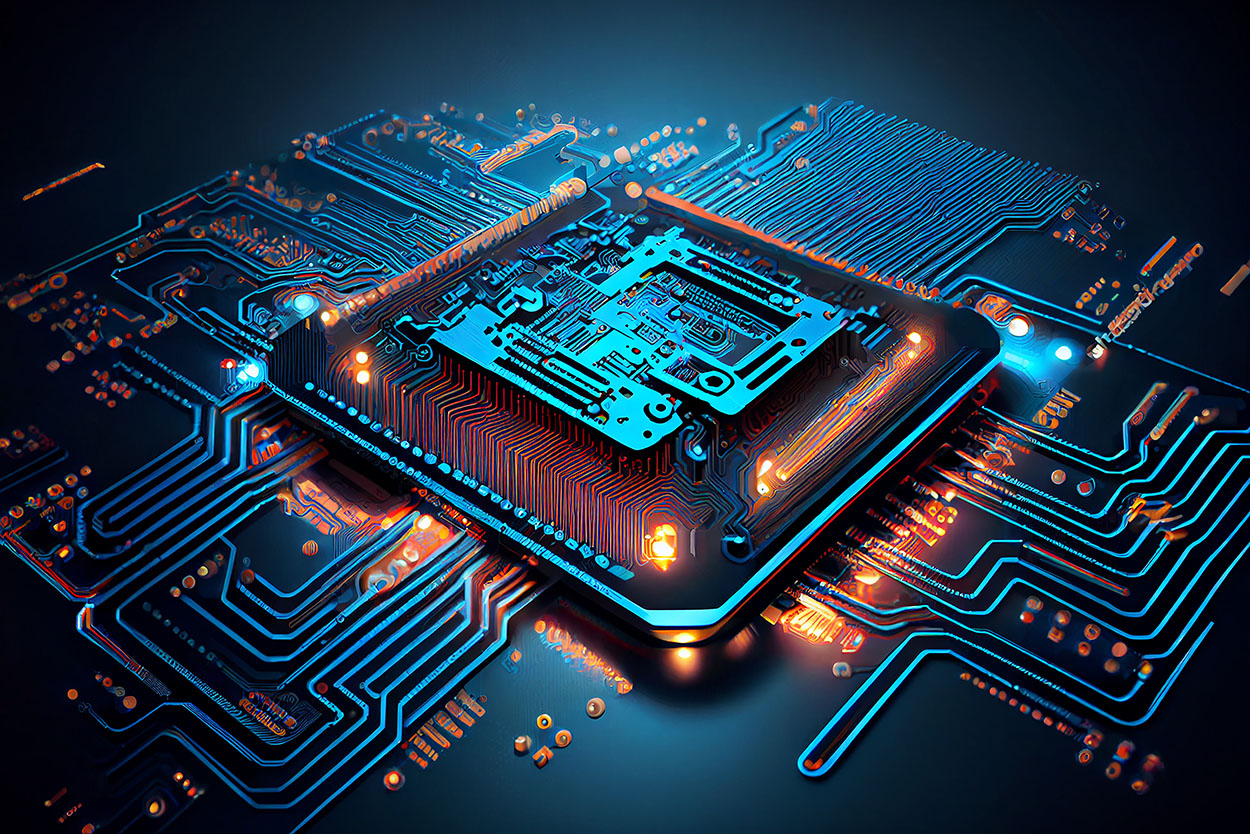From Bits to Qubits: A Leap Into the Unknown
 Manasa V
Manasa V
Imagine a computer that can solve problems in seconds that would take today’s fastest supercomputers thousands of years. Sounds like sci-fi? Welcome to quantum computing, the tech that’s bending reality and maybe your brain a little.
Qubits: The Spinning Superstars
Classical computers use bits (0 or 1). Quantum computers use qubits, which can be 0, 1, or both at the same time!
Think of a qubit as a spinning coin. While it’s spinning, it’s not just heads or tails it’s kind of both until it lands.
Qubits can also become entangled, a quantum connection where two qubits stay linked no matter how far apart they are. Change one, and the other reacts instantly. Einstein called it “spooky action at a distance,” but for quantum computers, it’s a superpower.
How Quantum Computers Actually Work
Imagine you’re trying to find the exit in a huge maze:
Classical computer: One runner tries every path, one step at a time.
Quantum computer: Thousands of runners try every path at the same time, instantly finding the exit.
Quantum computers use special algorithms like:
Shor’s Algorithm: It is like a super-powered code breaker. It can quickly factor huge numbers that would take classical computers thousands of years. This is why it’s famous in the world of encryption many of today’s secure systems rely on the fact that factoring big numbers is hard. With Shor’s Algorithm, those codes could be cracked almost instantly!
Grover’s Algorithm: It is a speedy search engine for math problems. Imagine trying to find a needle in a massive haystack classical computers have to check each straw one by one. Grover’s Algorithm, thanks to quantum magic, can check many possibilities at the same time, finding the needle much faster than any classical computer could.
Real-World Applications That Will Blow Your Mind
Breaking Encryption
Quantum computers could crack codes that classical computers would need millennia to solve. Cybersecurity will need a quantum-proof upgrade.Medicine & Chemistry
Imagine simulating a new drug molecule atom by atom in hours instead of decades. Quantum computers can make that happen.Optimization & AI
From logistics to finance, quantum computing can optimize problems way faster, like finding the best airline routes or training AI in record time.Climate Modeling
Accurate climate predictions or natural disaster simulations could go from months to hours, helping us better prepare for the future.
The Quantum Race
Microsoft: Focusing on topological qubits to reduce errors and build reliable quantum machines. In 2025, Microsoft unveiled the Majorana 1 chip, a topological quantum processor designed to make qubits more stable and less error-prone. This breakthrough could bring practical, large-scale quantum computing closer to reality.
Google: In 2019, Google demonstrated a quantum computer completing a calculation in 200 seconds a task that would take the world’s most powerful classical computers around 10,000 years.
IBM: Offers quantum computers on the cloud, letting anyone experiment with qubits online.
Quantum computing feels like sci-fi brought to life: AI predicting stock markets in real-time, materials designed atom by atom, and drugs discovered decades faster than ever. It’s already here, and for tech enthusiasts, scientists, and dreamers alike, the quantum frontier is just beginning.
The Quantum Challenges
Quantum computers are powerful, but fragile:
Decoherence: Qubits lose their quantum state easily.
Error Correction: Need hundreds of qubits to make one reliable “logical qubit.”
Cryogenic Temperatures: Many quantum computers operate near absolute zero (-273°C).
Quick Quantum Fun Facts 💡
2ⁿ states: 300 qubits can represent more states than there are atoms in the universe!
Quantum Computers Can Solve Some Problems Backward: Some quantum algorithms work in reverse, letting computers figure out the cause from the effect something classical computers struggle with.
Quantum Computers Live in Freezers: Many operate at -273°C, almost absolute zero. That’s colder than outer space!
Qubits aren’t just tiny circuits they can be made from photons, atoms, ions, or even exotic particles like Majorana fermions.
Quantum Lingo 101
Quantum computing has its own language here’s a quick glossary to make sure you are fluent in qubits, superposition, and all things quantum.
Qubit – The basic unit of quantum information. Unlike a classical bit (0 or 1), a qubit can be 0, 1, or both at the same time.
Superposition – A qubit’s ability to exist in multiple states simultaneously, like spinning a coin that’s both heads and tails until you look.
Entanglement – A mysterious connection between qubits, where changing one instantly affects the other, even if they’re far apart.
Quantum Gate – Like a logic gate in classical computers, but for qubits, controlling their states and enabling quantum operations.
Qudit – A generalization of qubits that can exist in more than two states, like a quantum dice instead of a coin.
Decoherence – When qubits lose their quantum behavior due to outside interference, like “forgetting” their quantum magic.
Qiskit / Q# – Programming languages for quantum computers. Qiskit is used with IBM hardware, and Q# with Microsoft’s quantum systems.
Until Next Time, Stay Quantum Curious!
Quantum computing is the future of computation, and it’s closer than you think. Buckle up, because the quantum frontier is wild, mind-bending, and spinning faster than a qubit in superposition.
Hope your imagination did a few quantum flips. Stay tuned and watch this space for more futuristic tech made simple, fun, and totally awesome!
Subscribe to my newsletter
Read articles from Manasa V directly inside your inbox. Subscribe to the newsletter, and don't miss out.
Written by

Manasa V
Manasa V
👩💻 Tech Consultant @ Microsoft 💡 Curious mind diving into AI, code & future trends 🚀 Exploring the why and how of everything tech 📚 Forever learning. Always vibing with innovation.